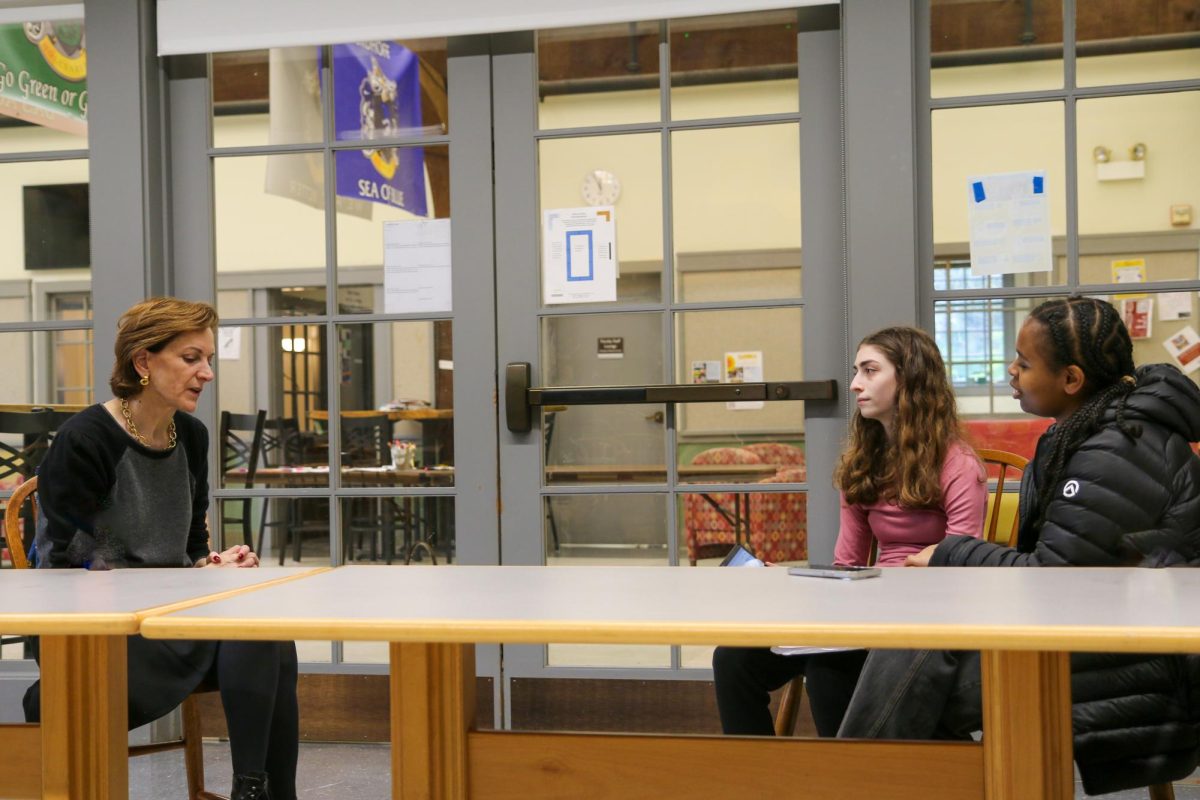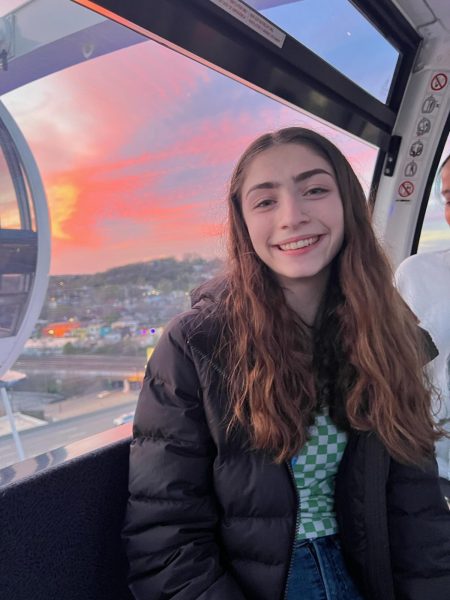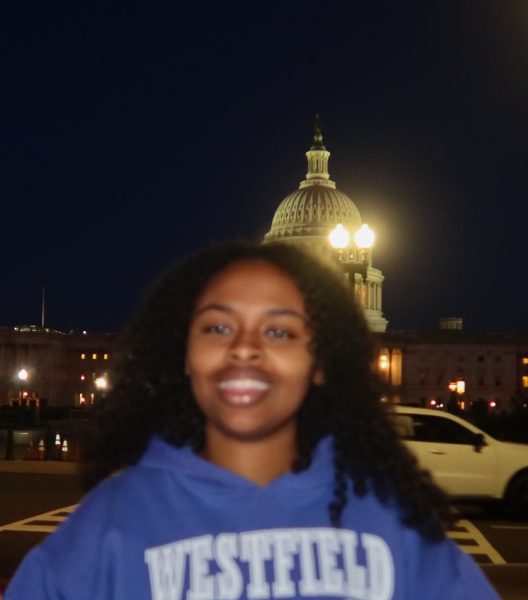Anne Applebaum is a staff writer for “The Atlantic,” a senior fellow at the SNF Agora Institute of John Hopkins, and a Pulitzer Prize–winning author and historian. An American and Polish dual citizen, Applebaum’s work focuses on communism and the Soviet Union, as well as the development of independent nations in the wake of its dissolution in 1991 and the rise of authoritarianism and nationalism in the 21st century. Prior to speaking during assembly as this year’s Bernie Noe Endowed Lecturer on Ethics and Politics, Ms. Applebaum met with “Tatler” to discuss her career, advice for high schoolers, and prognoses for the future of democracy.
How and when did you start getting into journalism, and what made you interested in European history and the Soviet Union?
I’ve been interested in journalism since I was pretty young, mostly because I liked the idea of calling people up and asking them questions. I never worked for a newspaper in college, but I did work for a college magazine called “The New Journal.” Later on, I became a freelance journalist. I had a fellowship to study in England, so when I was in England, I would travel and I would try and write in order to pay for the trips. What drew me to the Soviet Union and Russia is harder to explain. I went to college, where I studied Russian, in the 1980s, which was the very last phase of the Cold War. I had the opportunity to study in the Soviet Union one summer, and that was really an experience — it was like walking through the Looking Glass and being in a completely different kind of society. I had a desire to understand what it was and how it worked. The first important thing I did was move to Poland in 1988, when it was about to transition from a communist society to a democracy. I was able to write about the collapse of the Soviet dictatorship and the birth of democracy in Eastern Europe, and so that’s where my interest came from.
Did your high school experience inspire your career in any way?
I had a couple very good English teachers. I remember one in particular who taught modern European novels. That was the first time I was exposed to people writing about different countries from a different perspective and analyzing them in a deep way. And, actually, when I was in high school, I read a lot of Russian and French novels. For me, it was a way to understand the outside world.
At Lakeside, the History Department recently redesigned its curriculum to “decenter” Europe. As a European historian, what do you think about this?
I mean, I think it’s important for Americans to understand the tradition that their country emerged out of. You know, what were the ideas of the people who built the United States? What was their past? Because those ideas are really coded into our Constitution and our legal system. And, for that reason, I think it is important to understand European history more so than other parts of the world, just if you want to make sense of your own country and how it got to be the way it is and why it looks how it does. I think it’s a shame for [students] not to know that. Having said that, I hope everybody will someday take a course in Chinese history, and I hope everybody will study Latin America. It’s not a question of hierarchies — it’s just that, at some basic level, fundamentally you want to understand why our society is the way it is, and one of the things it came from was a series of European traditions.
What advice do you have for aspiring student journalists?
If you want to be a journalist, learn a weird language. Really. Because if you want to be a foreign correspondent, being able to go somewhere and understand what’s going on in a way that other people can’t, it’s really useful. And you also get insight into somewhere very different. It doesn’t matter what language it is — Swahili or Kyrgyz or some other language. If you have access to some place that is different, it will give you a good perspective on the rest of the world.
What are some of the warning signs of a failing democracy? How can we identify them, and do you think America is heading in that direction?
The most important warning sign is when you have a political party or leaders who say, “Only I represent the true people and my opponents are elitists and enemies and traitors.” When the political parties see one another not as, “Okay, I disagree with them, but we’re all loyal Americans,” and instead begin to see one another as enemies, that’s a very bad sign, and we are already in that phase. Then there’s the undermining of independent institutions, of judges, of the civil service, of media. As those things decline, you get a worse level of governance, and a worse level of conversation as well.
Given this decline in democracy, what advice do you have for our generation?
It’s very important to think about yourself as a citizen and think about what that means. It means you should always vote. It means you should always know about your local and national candidates. You might think about participating in local politics: You could work at a polling station, or you could be involved in some community projects. I would start with those things as the most basic things to do. Before you worry about democracy, focus on what you can do and how you can remain involved, because democracies really only work when people participate in them.
This interview has been edited for clarity.



